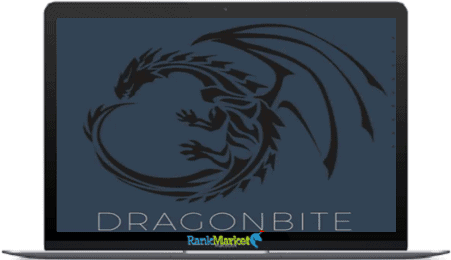[Group Buy] DataCamp Premium
$150.00 Original price was: $150.00.$35.00Current price is: $35.00.
DataCamp is a superb resource for those who want to learn more about data science and data engineering, but those who take these classes will need to be driven and self-motivated.
| Deliver | Product FE + OTOs |
|---|---|
| Access | Individual |
| Type | Shopify Ecom |
| License | Commercial |
| Details | GB Salespage |
![]()

What is DataCamp ?
DataCamp is a superb resource for those who want to learn more about data science and data engineering, but those who take these classes will need to be driven and self-motivated.

Features
FE – DataCamp Premium Annual – $396/Y
- Projects (80+)
- Apply your skills to real-world situations and build your project portfolio.
- Tableau, Power BI, and Oracle content
- Priority support
What Does DataCamp Offer?
- DataCamp offers 354 courses, 51 skill tracks, and 12 career tracks — all in the field of data science. Through DataCamp, computer scientists can learn Python, R, SQL, and more, all while building their data science portfolio through real-world projects.
- In DataCamp, students can learn in four ways:
- Courses: Individual data science courses such as Introduction to Python, Introduction to SQL, and Introduction to R introduce students to a single concept at a time.
- Skill Tracks: Learning skill tracks such as R Programming, Importing & Cleaning Data, and Visualization include multiple, in-depth classes to provide students with a broader spectrum of knowledge.
- Career Tracks: Career tracks such as Data Analyst, Data Scientist, and Python Programmer include comprehensive sets of courses intended to give students everything they need to know about a specific career.
- Certifications: Certifications such as Data Scientist or Data Analyst prove an individual’s existing knowledge about specific fields.
- Career and skill tracks are both built out of courses — but you can also take these courses individually. Either way, students can learn from these courses, skill tracks, and career tracks as long as they pay for DataCamp’s monthly subscription cost.
What Can You Learn at DataCamp?
- DataCamp provides courses in data science, data engineering, data analysis, and tools to support these fields. At DataCamp, you can learn about Python, SQL, R, machine learning, natural language processing, and more.
- DataCamp is firmly designed for the data science and data engineering fields. So, even in the “Introduction to Python” classes, Python is mostly taught for data science, even though it is a general-purpose programming language. Because of this, you should be certain that you’re interested in the field of data science first.
- Because of DataCamp’s hands-on learning methods, students will start learning how to program, analyze data, and engineer databases immediately. Students can develop their portfolios and prepare for coding interviews.
- But do note that most of the classes require that you teach yourself. If you’re looking for a lot of instruction, this isn’t the platform for you.
DataCamp Skill Tracks: The Most Popular Skill Tracks
- Python Fundamentals digs deeper than the Introduction to Python courses, introducing you to more advanced Python features and use cases. After the Python Fundamentals course, you should have a portfolio of Python projects.
- Like the Python Fundamentals course, SQL Fundamentals will build upon the basic Introduction to SQL and teach you more about using SQL in the real world. Learn how to build databases that last.
- Find out how to incorporate data science into your business analysis. Many of those adjacent to the computer science fields still need to understand how business data works. Data skills for business is the perfect skill track.
- Skill tracks dig deeper than courses by embodying all the courses you need to become a subject expert.
DataCamp Careers: The Most Popular Career Tracks
- The Data Scientist and Data Analyst career tracks on DataCamp are likely their most popular career tracks, as they segue directly into certification. You can complete the Data Scientist and Data Analyst career tracks and then take a certification to prove your skills.
- The Data Scientist path is an 88-hour track that includes 22 courses. Students will learn the R language, data collection, data manipulation, data importing, data analysis, cluster analysis, and more. At the end, they will have the knowledge an entry-level data scientist candidate should have.
- Collect and analyze data to your heart’s content. The Data Analyst path is a 32-hour career path with 8 courses. Students will learn how to perform data analysis, how to visualize data, and how to build their careers with R.
- A 59-hour, 15-course career path, Python programmer takes you from beginner to advanced in Python data science. This Python Programmer track is specifically aimed toward data manipulation and unit testing and requires no prior coding knowledge.
- Other career paths include Machine Learning Scientist, Quantitative Analyst, and Data Engineer. These career paths assume that you haven’t worked within the field before; they take you from A to Z.
| Time | 1 Year |
|---|
Some Questions Before Join US
Group buying, also known as collective buying, offers products and services at significantly reduced prices on the condition that a minimum number of buyers would make the purchase.
- First, we will list product Here as people request & Collect Money From other peoples.
- Sec, Once enough moneys from customer, we will buy products From Developer.
- Then, we deliver to all Joiners.
- You can join directly by Purchase at our site and Reach Support about that to confirm.
- You can join via our Community : https://bit.ly/RMKDiscord
- How to Buy
We have 2 Product Status
- Instant-Deliver : Avaible and Deliver within 24-48hs (not on Sat-Sun, Holiday)
- Group Buy/Pre-Order : Not avaible, Still collect more people to join, need to wait.
OTO mean that One-Time-Offer/Upsell/Upgrade of Product For limited time only
Cancelled mean that order is not pay/process within 24hs. Please reach us with Order ID to check.
You will get Products by Download via Email .Once you finish payment to us and get confirm. You will get download Links inside your Account
- SAAS : You will get Individual account via Mail or On your Order List
- Shared Tool : via our chrome (WIN/MAC/Linux)
- WP : We will active key for your site.
- Course/Book/GraphicKit : Download link will send via mail or On your Order List.
- ETA Time : Fast maybe 3-4 days or 1 Week , Always be 3-4 Weeks or some times as Member Request it can be up to 3 Months to Group Buy WIN.
- GB Fail : You will get refund or exchange other.
– If Products problem, Capture screenshot/Video to us. We will forward to developer to fix it.
– If impossible sloved, we will exchange to other product. With Annual Product, we will refund or exchange by subtract times that you used.
– If used product for 1 or few years then not work. we will try to contact developer to fix it. But if some bad Vendors keep money and run, we just can give you some discount for future orders.
Warranty Time :
- Monthly Product : 30 days
- Annual/One Time Product : 1 year.
Our Store Credit mean credit can use to redeem on Your orders. 25 Credit = 1$.
Earn by some way :
- Place Orders. Each 1$ spend you will earn 1$
- Exchange some not work/not-fullfill orders by your agreed.
- By Reffer Your Friends to buy at our store.
How to redeem
- At Checkout page have redeem button to use it. Maxium is 250/orders.
- If you need redeem more. Reach our Support
We support only via 2 channel :
- Email : support@rankmarket.org
- Messenger : m.me/rankmarkenet (Live chat on Site)
TIme : From 9AM - 6PM Monday - Friday (GTM+8).
All Order/Ticket on Sat-Sun/Holiday will be supported on next Monday.
WE ARE TRY TO WORK HARD AND SUPPORT ALL PEOPLE BUT WE CAN NOT MAKE ALL HAPPY 100%
Thanks For You are here and belive US for longtime.
While working,we meet someone like & we will not support :
– People buy 1 but want to exchange to 10 Products.
– People who steal our products then ask refund.
– People fake payment to get our products.
– People always ask refund,can not wait for waiting product. Dont Pay. Wasted our Time.
Best Regards
David Green – RankMarket











